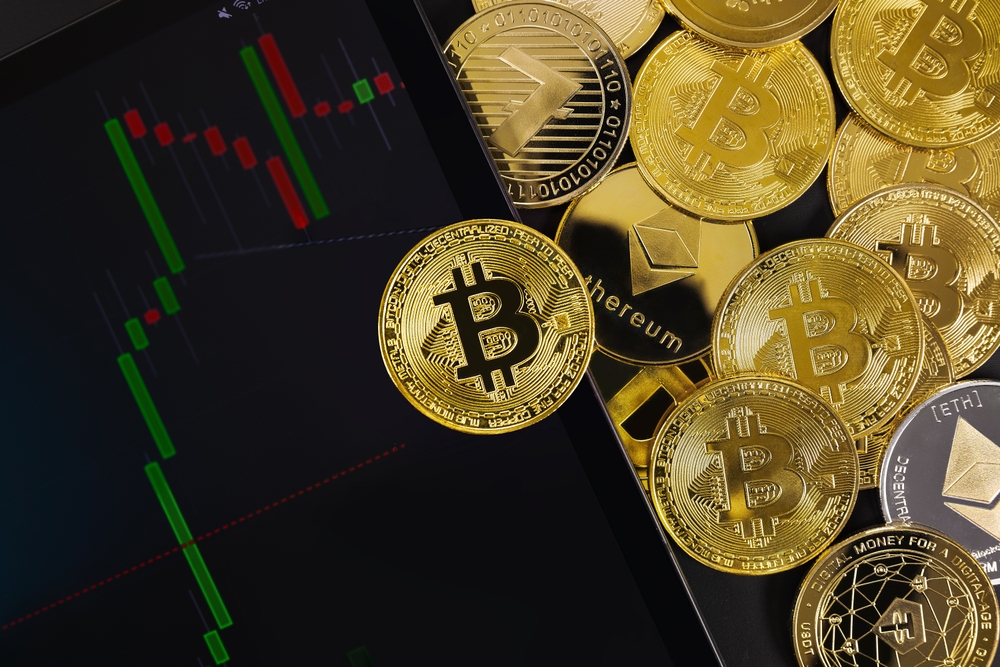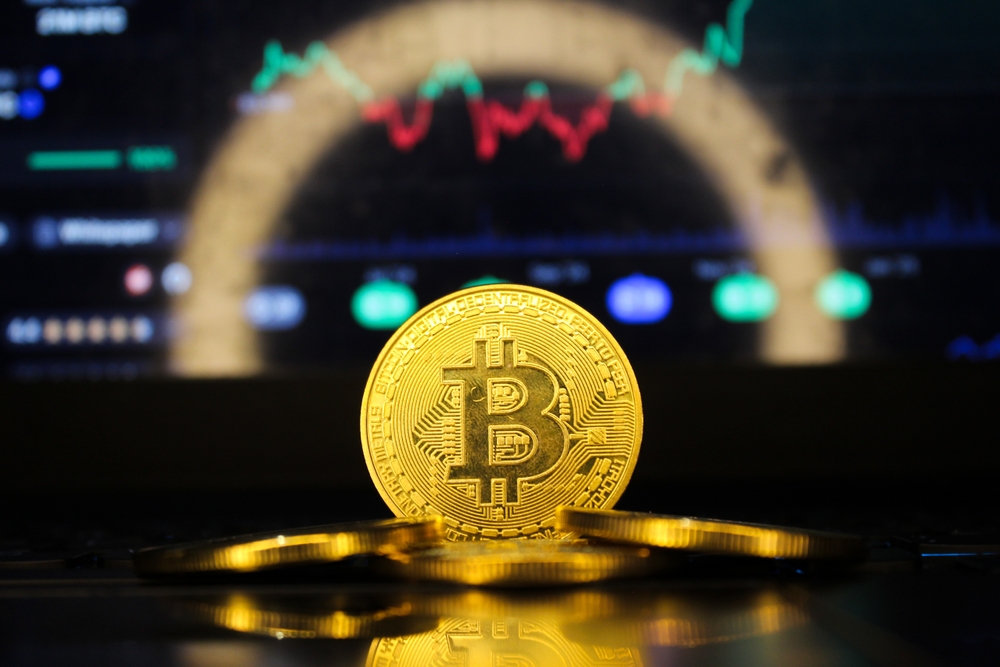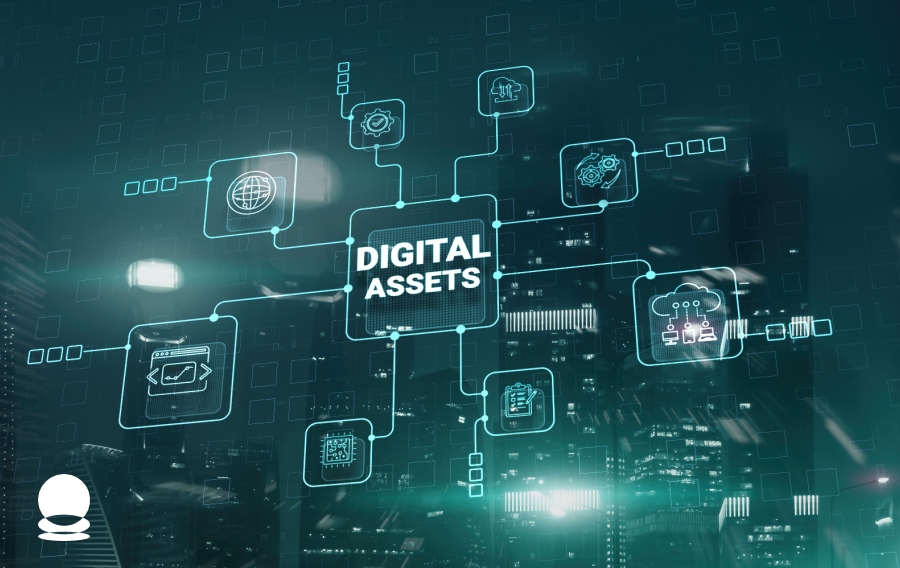Digital assets are changing finance and technology by giving people new ways to store, move, and manage money online. They are important because they make things clearer, faster, and more compliant in an economy that is becoming more digital.
By learning about digital assets, you can see how financial systems are changing and how you can use these changes to your advantage. Every kind of digital asset is worth something. People can send money directly to each other with cryptocurrencies.
Tokenized securities bring stocks and bonds into the digital world, making it easier to trade them. NFTs are a way to show that you own unique items like art or collectibles. Tokenized real-world assets go even further by letting people trade goods and properties in digital form.
Join us in this blog as we explore what digital assets are—uncovering how they’ve evolved from simple digital records into powerful tools driving the global economy. We’ll break down what is considered a digital asset to its future. Let’s start!
Why Are Digital Assets Important?
Digital assets are important because they make it possible for transactions to happen quickly and clearly across borders. International payments through traditional banks often take a long time, cost a lot of money, and require a lot of middlemen.
Digital assets make this easier by getting rid of steps that aren’t needed and letting parties deal with each other directly. This makes things run more smoothly for both people and businesses.
They also help people get access to financial services. Digital assets let people take part in the global economy in places where banking services are hard to get.
You can send and receive money right away, even if you don’t have a regular bank account. This is a big change for communities that didn’t have access to reliable financial systems before.
Another important thing is security. Digital assets are safe from fraud and tampering because they use advanced cryptography and blockchain technology. A public ledger can verify every transaction, which makes it clear and hard to change. In most systems, this level of accountability is not possible.
Using digital assets gives you more control over your money and makes you less reliant on other people. In short, they make everyday finance clearer, faster, and more compliant. Jeton can help you safely get involved in this growing market.
What Is Considered a Digital Asset?
There are many different types of digital assets, and each one has its own use in finance and technology. Some stand for money, others for ownership, and some serve as proof of authenticity.
They all have one thing in common: they are digital and can be sent electronically. This makes them easy to move around, use, and adapt to different cultures. Here are the most common ones:
-
Bitcoin and Ethereum are two examples of cryptocurrencies.
-
Tokenized stocks and coins that stay stable
-
Digital art and NFTs (non-fungible tokens)
-
Digital versions of real-world assets, like property rights
These groups show how digital assets can change and adapt. In short, digital asset examples show that there is a lot of value online.
This variety also means that users and investors can find digital assets that meet their needs, whether they want to use them for payment, investment, or proof of ownership. Jeton makes it simple to keep track of and move these assets safely.
Is a Digital Asset a Token?
Crypto tokens are a big part of the ecosystem, but not all digital assets are tokens. A token is a way to show a certain value or use in a blockchain system. Tokens can be used to control things, give people access to services, or show that they own something.
They have become one of the most adaptable tools in digital finance. Here are the main things you need to know:
- A token is one kind of digital asset, but there are others.
- On blockchain networks, tokens can stand for access, rights, or ownership.
- This difference shows how varied crypto assets are.
Knowing this difference will help you get around the area more easily. You can use a token in a way that fits your needs if you know that it can be used as money, proof of ownership, or access rights.
If you want to further explore tokenization, make sure to check out:

Is Blockchain a Digital Asset?
Blockchain is not a digital asset; it is the system that protects and checks them. You can think of blockchain as the road that digital assets take. It is a decentralized ledger that keeps track of transactions in a way that is clear and can’t be changed.
Multiple people confirm each transaction, so no one person can change the record. Most crypto and digital assets wouldn’t be around if there weren’t blockchain. Blockchain is what cryptocurrencies use to keep track of who owns what and how much they owe.
NFTs need it to show that they are unique and real. Tokenized assets use it to check claims of ownership and the right to transfer them. The whole digital asset ecosystem is built on blockchain.
Blockchain has benefits that go beyond money. Governments use it to protect digital identities, supply chains use it to be clear, and healthcare systems use it to protect patient records.
This means that when people use digital assets, they are always somehow connected to blockchain. Blockchain makes sure that you can trust and keep your money safe when you buy a cryptocurrency, trade a token, or collect digital art.
Are All Digital Assets Cryptocurrencies?
There are other types of digital assets besides cryptocurrencies. Bitcoin and Ethereum are two of the most well-known cryptocurrencies, but there are many others as well. Utility tokens, NFTs, tokenized securities, and digitized real-world assets are all types of digital assets.
The digital economy is so rich and diverse because of this variety. Cryptocurrencies are a type of digital money that lets you make payments right away without going through a bank. But NFTs, for example, serve a very different purpose by showing that you own unique digital items.
Tokenized securities bring traditional finance to the blockchain, where transactions can be settled faster and at a lower cost. Stablecoins keep prices stable, which makes them a link between the traditional money market and the crypto market.
There are many different types of digital assets, so you have more choices than just cryptocurrency. You can buy, sell, store, or even prove that you own assets. Depending on what you need, each type of digital asset has its own set of benefits.
Are Digital Assets the Same as Cryptocurrency?
There is a connection between digital assets and cryptocurrency, but they are not the same thing. Cryptocurrency is a type of digital asset. This difference is important because the digital asset ecosystem includes a lot more than just coins and tokens.
If you only learn about cryptocurrency, you might miss out on chances in other areas. Digital assets can be things like tokenized real estate, digital art, intellectual property, and even decentralized identity solutions.
These areas are growing quickly, which opens up new opportunities for people and businesses. For instance, artists can now sell their work directly to collectors as NFTs, and businesses can get money by selling tokenized shares. These chances show that digital assets go far beyond just crypto coins. You can safely and easily buy digital assets with Jeton, making sure you are part of this change.
How Many Crypto Assets Are There?
There are a lot of crypto assets out there right now, and new ones are being made all the time. Every asset has a different use, such as payment systems, smart contracts, and decentralized finance apps.
Bitcoin is still the most well-known cryptocurrency, and it’s mostly used for online payments and as a way to store value. Ethereum has a whole ecosystem of decentralized apps, while other networks like Solana, Avalanche, and Cardano have made things more efficient.
It’s hard to say exactly how many digital assets there are because new ones are created and old ones are retired every day. But the trend is still growing as blockchain technology gets better.
Developers are trying out different tokens that show who owns something, who can vote on it, and even who can use certain services. This constant creation shows how flexible and dynamic the field is.
What Are the Benefits of Crypto Assets?
Crypto and digital assets have a lot of benefits for both people and businesses. They let you make transactions right away, are available all over the world, and have lower fees than regular banking methods.
Payments are processed in seconds, no matter where they are, which lowers the cost of sending money across borders. Records are kept on blockchain ledgers that can’t be changed, so ownership is safe and clear. Anyone can check them. These assets also give you freedom. Users have full control over their assets and don’t need to rely on banks or payment processors.
Digital assets also open up new ways to make money, like staking and decentralized finance (DeFi), where holders can earn yields by adding liquidity or taking part in governance. Blockchain makes businesses more efficient and lowers their administrative costs.
Digital assets are most important because they promote inclusion. They give people all over the world who don’t have banks access to financial systems. Jeton makes sure you can safely take advantage of these benefits.

What Are Examples of Digital Assets in Crypto?
There are many different types of digital assets in crypto, and each one has a different use in the ecosystem. Here are the digital asset examples that people know the best:
- You can use cryptocurrencies like Bitcoin, Ethereum, and Litecoin to pay for things and send money.
- Stablecoins are backed by real-world currencies to keep prices stable.
- NFTs are digital art, collectibles, or ownership rights.
- Tokens for utility and governance that let you use blockchain platforms or vote on decisions about protocols.
Each of these assets has a different job to do in the bigger picture. Stablecoins connect traditional finance and blockchain, while cryptocurrencies are a way to trade.
NFTs let creators and collectors trade proof of ownership of digital goods, which gives artists new ways to make money. Governance tokens give communities the power to vote on changes to protocols.
The wide range of these assets shows how much digital finance has changed in just a few years. Investors can now spread their money around, support new ideas, and even own digital property in virtual worlds.
Why Do People Buy Digital Assets?
People choose to buy digital asset options for a few main reasons: they can make money, they can spread their money around, and they can get to new technologies.
Investors see digital assets as a way to protect themselves from inflation and the devaluation of their currency, especially since central banks are increasing the amount of money in circulation. The fact that these assets are not tied to any one place gives people a sense of freedom and control over their own money.
Some people buy digital assets so they can take part in new blockchain projects or decentralized apps. Some people invest to make money without doing anything, like staking rewards, yield farming, or lending.
Digital assets can also give you a chance to invest in new areas like metaverse platforms and tokenized real-world assets. To put it simply, buying digital assets is no longer just for speculation; it’s now a way to be part of a global movement toward user-centered, open finance.
What Is the Future for Digital Assets?
As more governments and global institutions start using blockchain solutions, the future of digital assets looks bright. Financial institutions are starting to use tokenized assets, and central banks are looking into digital currencies (CBDCs).
The merging of traditional finance and blockchain-based systems will shape the next ten years of economic change. Investors and businesses can benefit from the increasing clarity of regulatory frameworks.
Digital assets will become more legitimate and attract institutional capital as governments set compliance standards. Combining AI, blockchain, and finance will make markets work better, help catch fraud, and make cross-border settlements easier.
Tokenization will also go beyond currencies and into real estate, art, and intellectual property, making it possible for people to own a small part of valuable assets. Digital payments will be built right into businesses’ platforms, making them a normal part of doing business.
How Do I Invest in Digital Assets?
You need to plan ahead, maintain discipline, and consider security when investing in digital assets. To get started with confidence, do these things:
- Find out which types of assets fit with your goals, like holding them for a long time or trading them often.
- Use a safe platform like Jeton to handle transactions and custody.
- Add a mix of cryptocurrencies, stablecoins, and utility tokens to your portfolio to make it more diverse.
- Keep up with the rules and regulations in your area and how to follow them.
- Use two-factor authentication and secure storage solutions to keep your accounts safe.
This structured method makes sure that your investments are both safe and smart. As markets grow, education and doing your homework are important for success. Jeton is a safe and reliable global platform that helps you explore and grow your digital investments while staying compliant and safe.
Wrapping Up
Digital assets are becoming an important part of modern money. They bring together new ideas with openness and give investors and businesses new chances. In the digital economy of today, assets are no longer just things you can touch; they are now records that can be verified on secure, decentralized networks.
Knowing the range, benefits, and future of digital assets can help you make smart financial choices while staying within the law as it changes. These assets are changing the way value is stored and traded around the world, which is opening up new ways to include, be efficient, and innovate.
You can safely access these opportunities through Jeton. With tools like the Jeton Wallet, you can store and manage your digital assets securely, while the Jeton Card brings them into everyday spending.
Whether you’re investing, trading, or simply exploring the potential of digital finance, the Jeton App gives you seamless access to a smarter, more connected financial world—where your digital assets truly work for you.
You can download the Jeton app via Google Play or the App Store. Sign up for a single account for all your payments!



